Let’s talk about protein! Getting enough protein is a common concern for plant-based eaters. What are the best types of protein? How about recipes that pack in the protein? How much do we actually need? The Vegetarian’s Guide to Protein covers all this and more, let’s do this!
Tara’s Tuesday Tips:
The Vegetarian’s Guide to Protein
When I plan any of my meals or snacks, I am always thinking about protein, carbs + fat first. The macronutrients. Next, I consider the micronutrients such as vitamins and minerals. We should all be thinking of the macronutrients first as these are what we require for energy, we need these in the largest amount to simply exist. Protein is important and ensures that our muscles, bones, cells, and organs all have structure, cell membranes, and hormonal balance and more! Super important! At the same time, super misunderstood! Plant-forward, vegan, WFPB, and everything in between, you need protein so let’s figure this out.
What exactly is protein?
Protein is a macronutrient and is made up of amino acids. Essential + vital for many of our body functions (cell repair, enzymes, antibodies). Our body breaks down the protein we eat for energy (along with fat and carbohydrates). Vital for simple existence regardless of our activity level.
Am I getting enough protein as a vegetarian?
The short answer is yes. So, you can stop reading if you like 😊. Americans obsess over the answer to this question and in reality, we aren’t as protein deficient as we are led to believe. Unless you are extremely calorie deficient, you are likely taking in enough protein.
How much protein do we need?
The Recommended Daily Allowance (RDA) for protein is 0.36 grams per pound of body weight for adults over 18. This needs to be adjusted for age and should also be adjusted for athletes especially endurance athletes. There is some literature that suggests that this number needs to be adjusted for vegans to 0.41 grams per pound to account for the nature in which plant protein is digested, but this does not add up to a whole lot of difference for us to be too concerned about.
Is there such a thing as protein deficiency?
Not in the average person unless they are malnourished of all nutrients and calories. In actuality, the average American gets double the recommended daily allowance of protein per day.
Can people get enough protein without eating meat?
YES! Vegetables, nuts, even grains have lots of protein. A fascinating fact is that residents of the Okinawa (a blue-zone where people have lived the longest in the entire world) get only 7 percent of their calories from protein! They eat a diet rich in rice, tubers, and vegetables. A diet that most of America believes is the high-carb evil diet. Quite the contrary!!
What about the vegetarian athlete?
Athletes need more of all nutrients, not just protein. Specifically, endurance athletes’ protein requirements are around 1 gram of protein per pound, vegetarian or not. This is extremely individualized based on the type of activity, amount, gender, and age BUT 1 gram of protein per pound is a good number to aim for.
Is getting protein from animal sources better for your body?
NO! Definitely not. Firstly, animal proteins are missing the fiber that plant-based proteins offer us. Second, eating large amounts of animal protein makes the body produce a substance called TMAO. Higher levels of this substance circulating in our blood can cause injury and inflammation to our blood vessels making it easier for plaques to form and increasing our risk of cardiovascular events. Third, all meats (yes, even lean meats) contain saturated fat and cholesterol. Surprisingly, our bodies produce all the cholesterol we need. Therefore, the extra cholesterol we take in from lots of animal products can accumulate in the lining of our blood vessels causing plaques (atherosclerosis) which can increase someone’s risk of heart attack and stroke.
How does a vegetarian get protein?
Nearly all vegetables + grains contain protein. In addition to vegetables, beans, nuts, and seeds all contain protein. Therefore, if a vegetarian eats a diet with a variety of foods (and enough calories), they will likely be getting enough protein.
What about amino acids?
Let me simplify this for you.
- Protein in made of building blocks called amino acids.
- Our bodies need amino acids.
- We are unable to make 9 out of the 20 most common amino acids. Therefore, we must eat them. We need these 9 as building blocks to make protein in our bodies. This makes them ‘essential’ – a buzz word in the nutrition/diet world you have likely heard.
- There are some foods that contain all of the essential amino acids and are considered ‘high quality’ proteins including eggs, fish, meats + fish, soybeans, quinoa + spinach.
- It is unnecessary to go out of your way to combine different proteins depending on their ‘essential’ status (something once considered very important to do).
- Eating a variety of plant-based protein sources is the best way to ensure you are getting enough of all amino acids. All plant-based proteins contain some amount of the essentials but in sometimes very small amounts, so variety is the best way to go.
What to eat to get enough protein?
Breakfast: peanut butter, oatmeal, vegan protein powder, almond butter, toast
Lunch: black beans, brown rice, tempeh, garbanzo beans, spinach
Dinner: tofu, soybeans, broccoli, quinoa, potato, green peas, lentils
Snacks: macadamia nuts, pistachios, oatmeal, dairy free yogurt (or dairy if not vegan), chia seeds
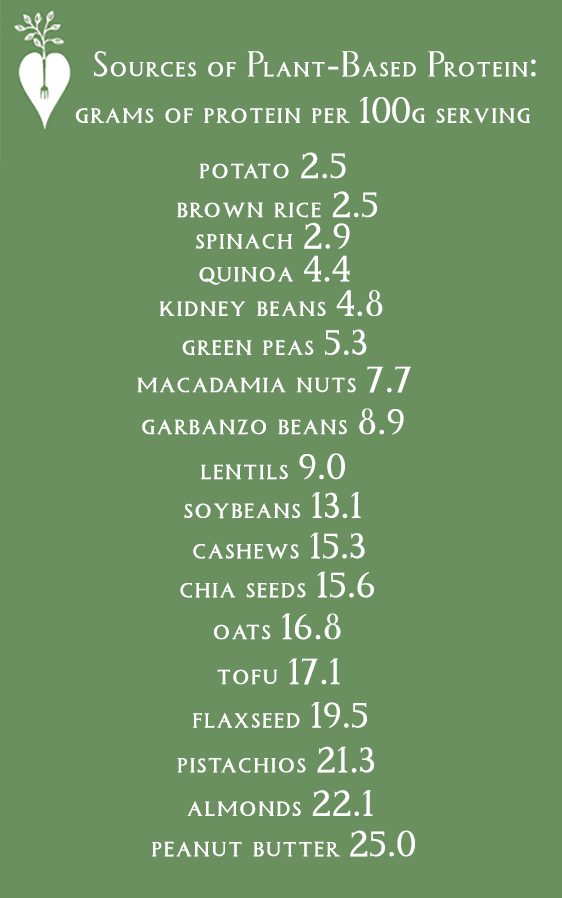
The vegetarian’s guide to high-protein recipes:
Instant Pot Chickpea Seitan Nuggets
Hope this helps you end your protein worries! Be well, friends + fam!
All the best,
Tara 💚
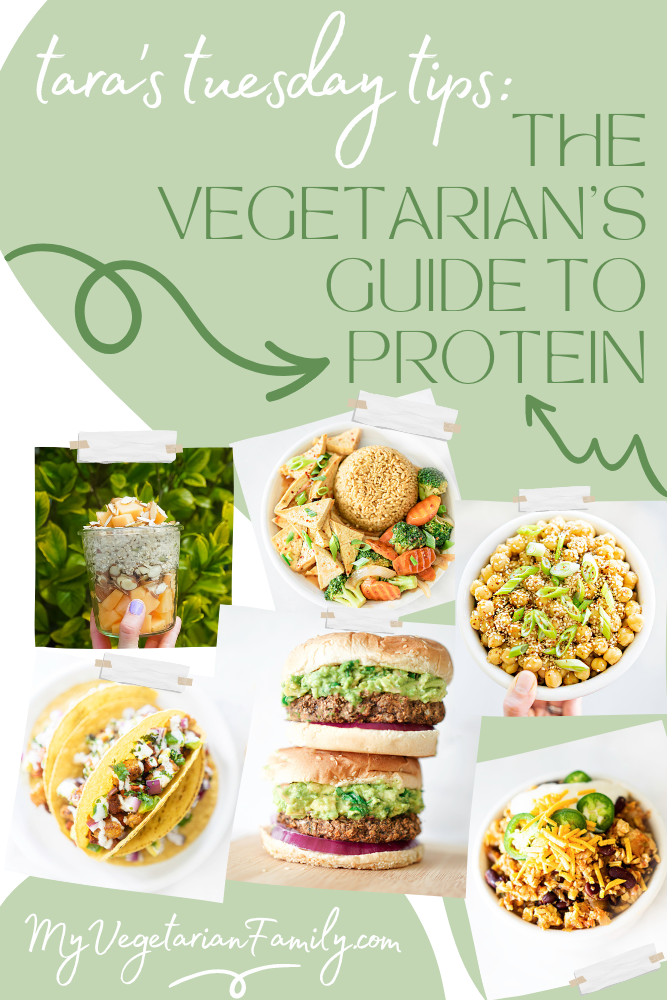
⭐Did you love The Vegetarian’s Guide to Protein? Leave a comment below! ⭐
📸I love to see your creations! Follow me on Instagram @myvegetarianfamily and hashtag it #myvegetarianfamily
💌Be sure to subscribe here to my weekly emails for tips and recipes so that you never miss a veggie thing!
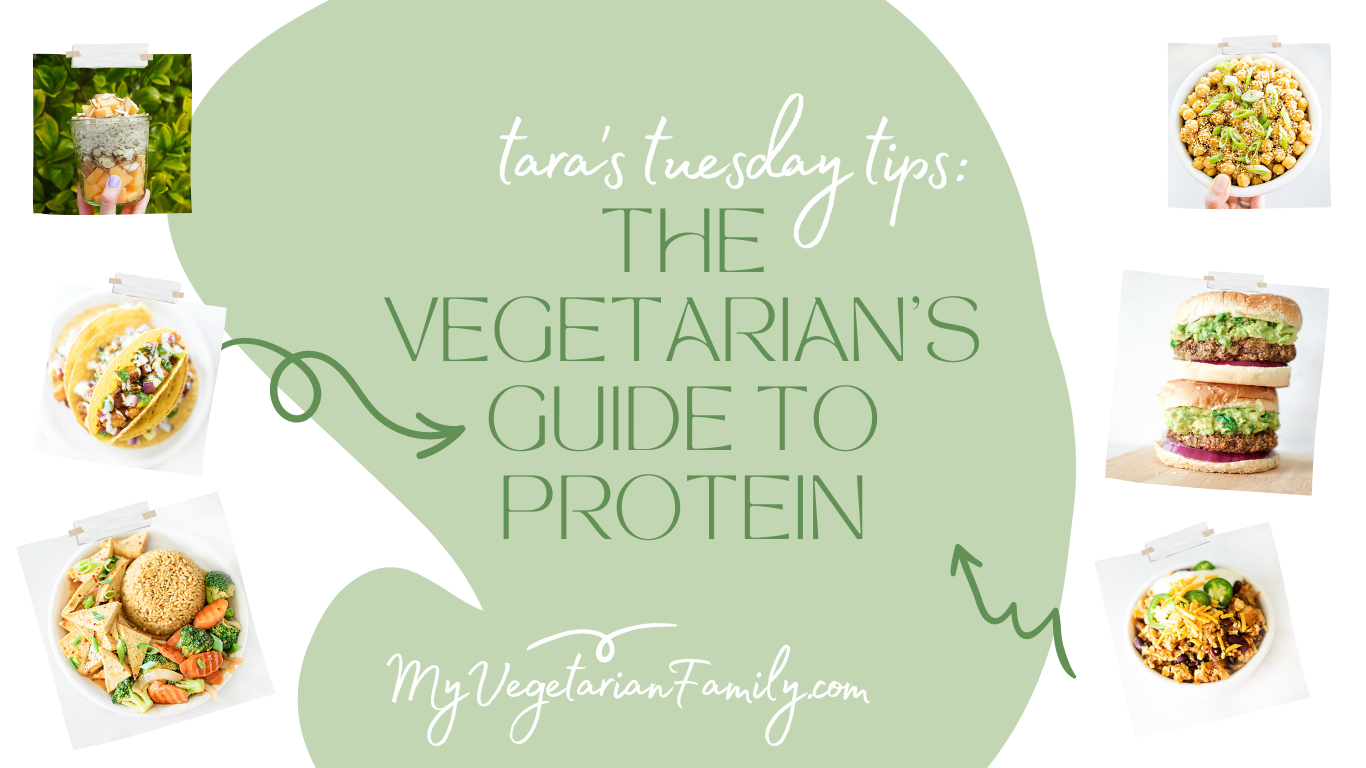
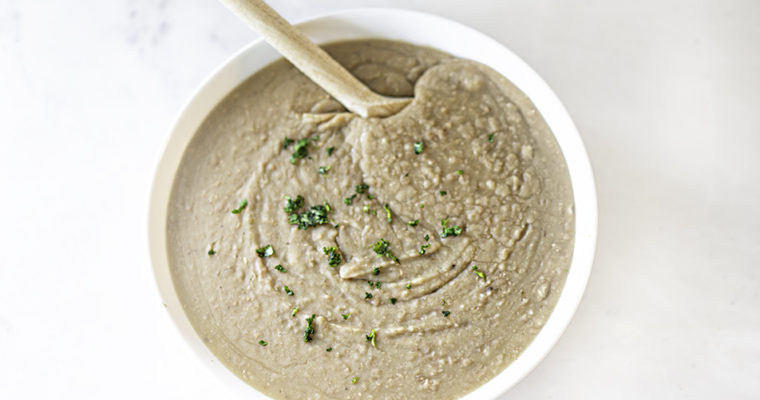
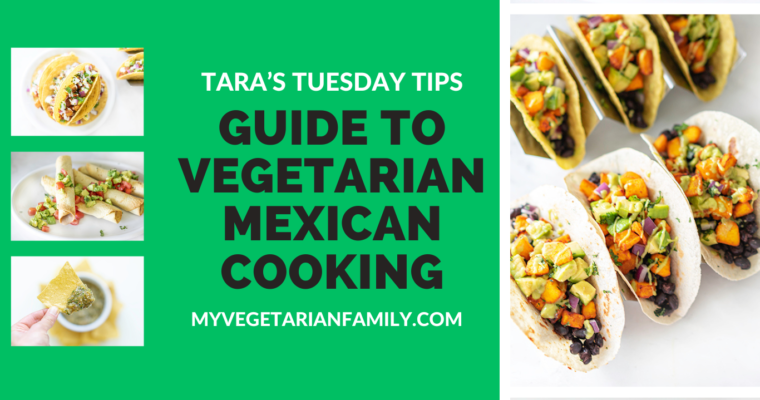
2 thoughts on “The Vegetarian’s Guide To Protein”